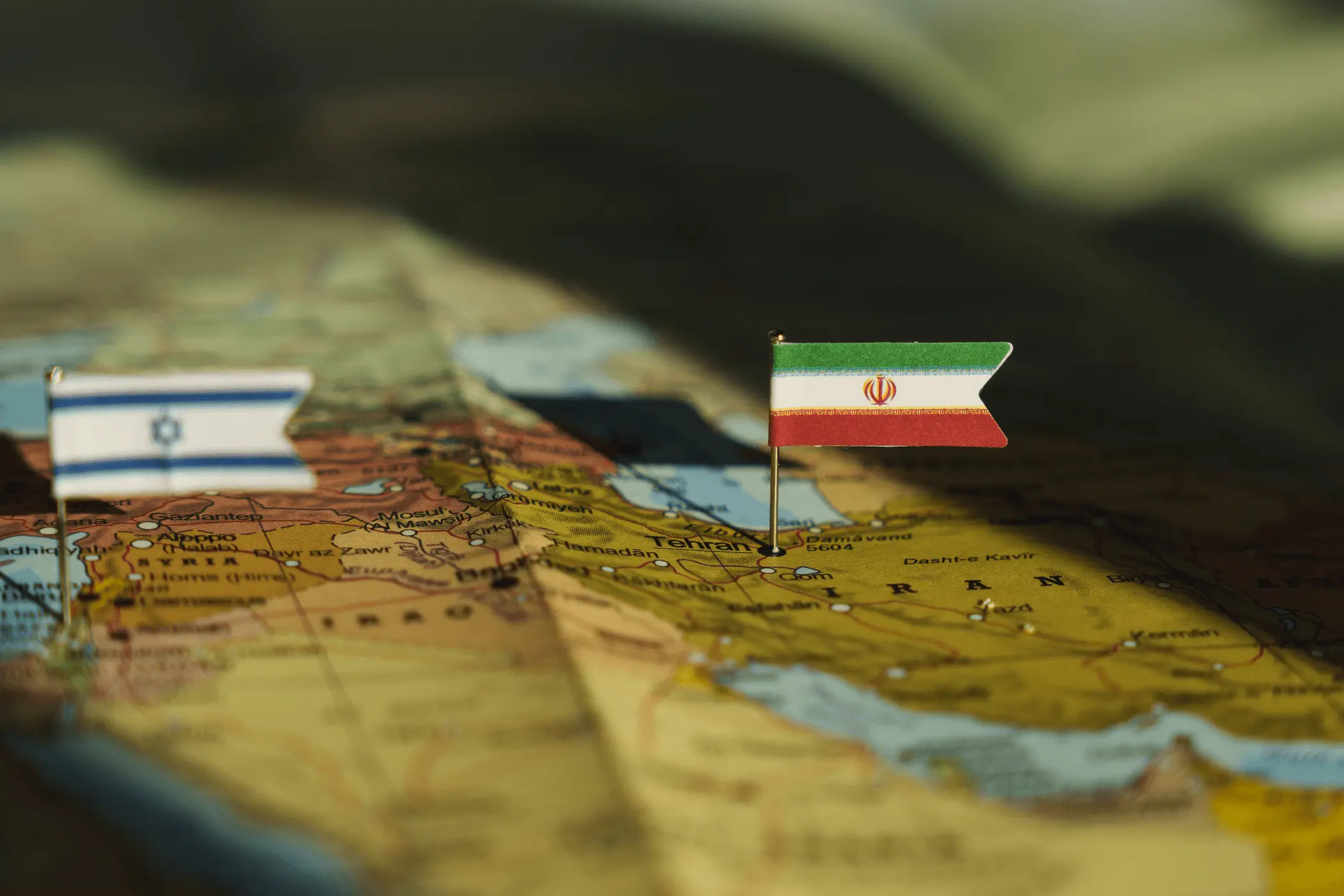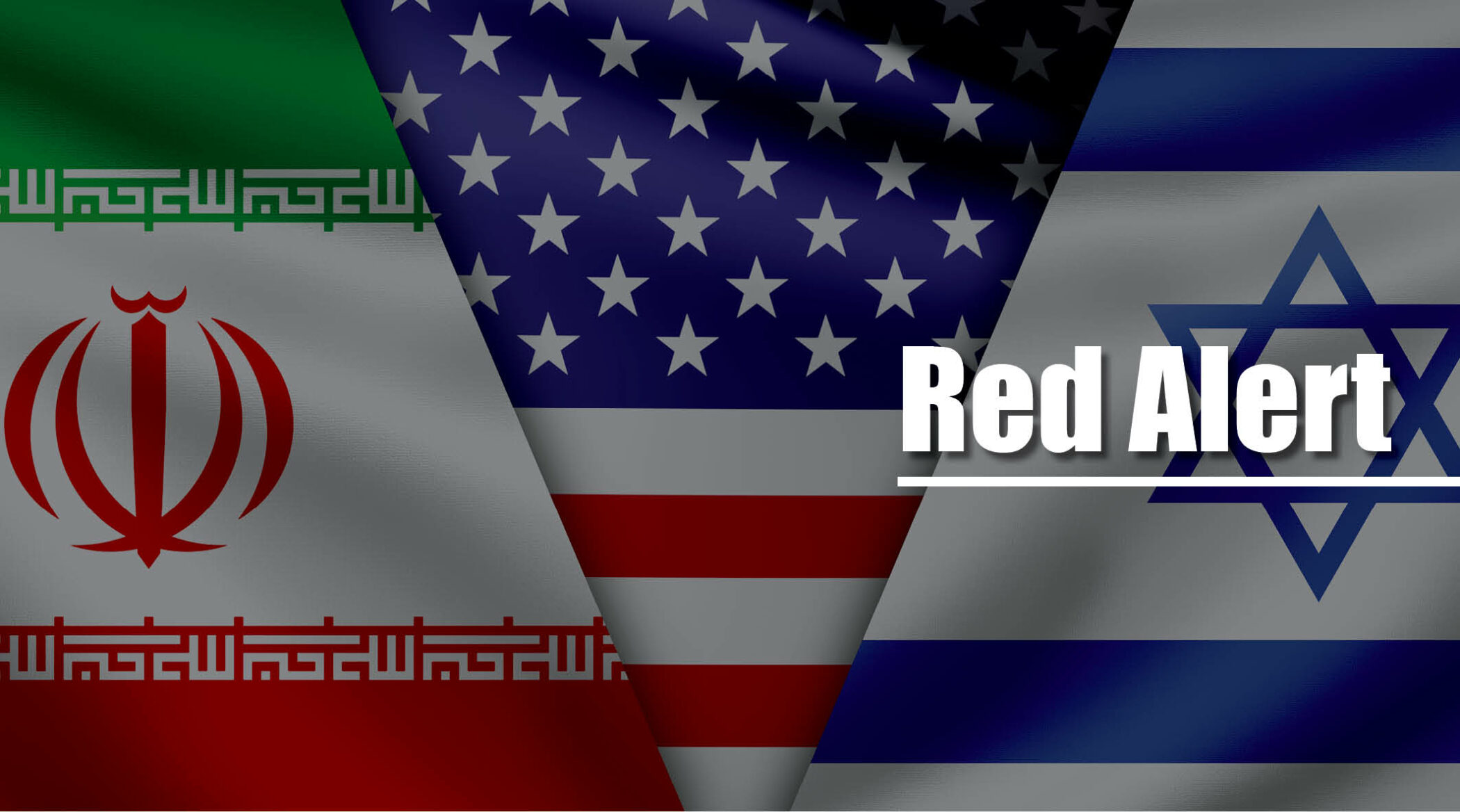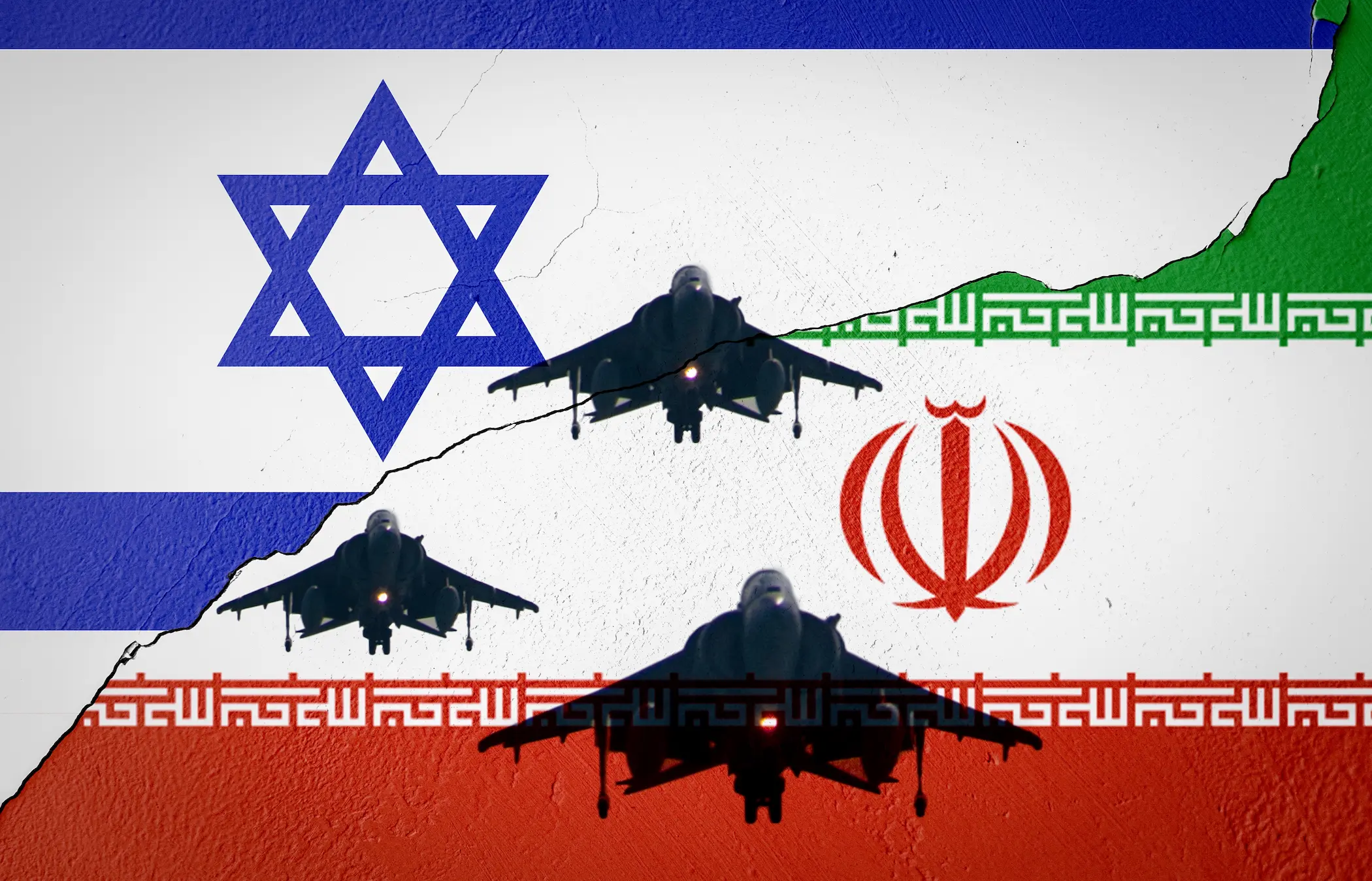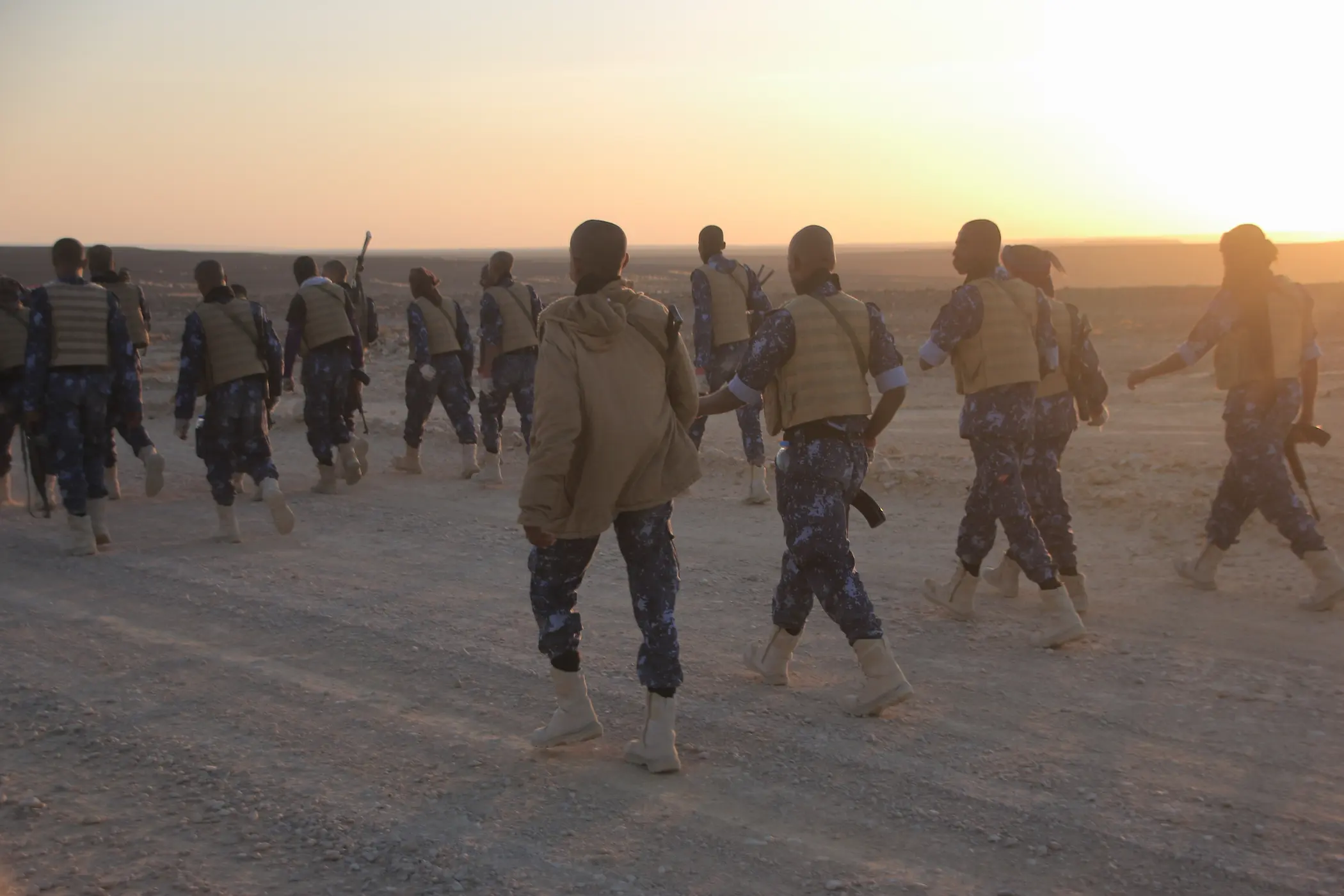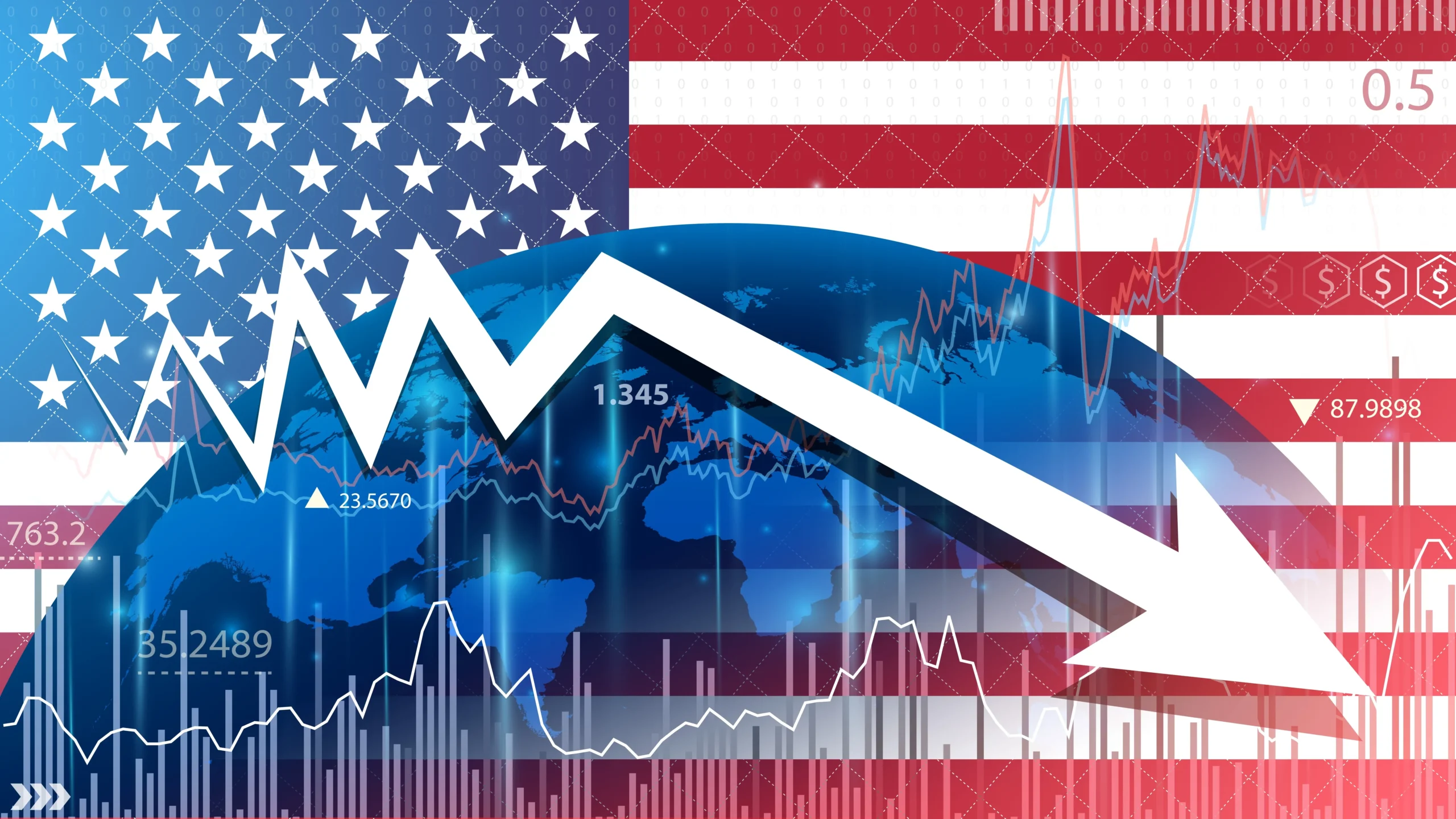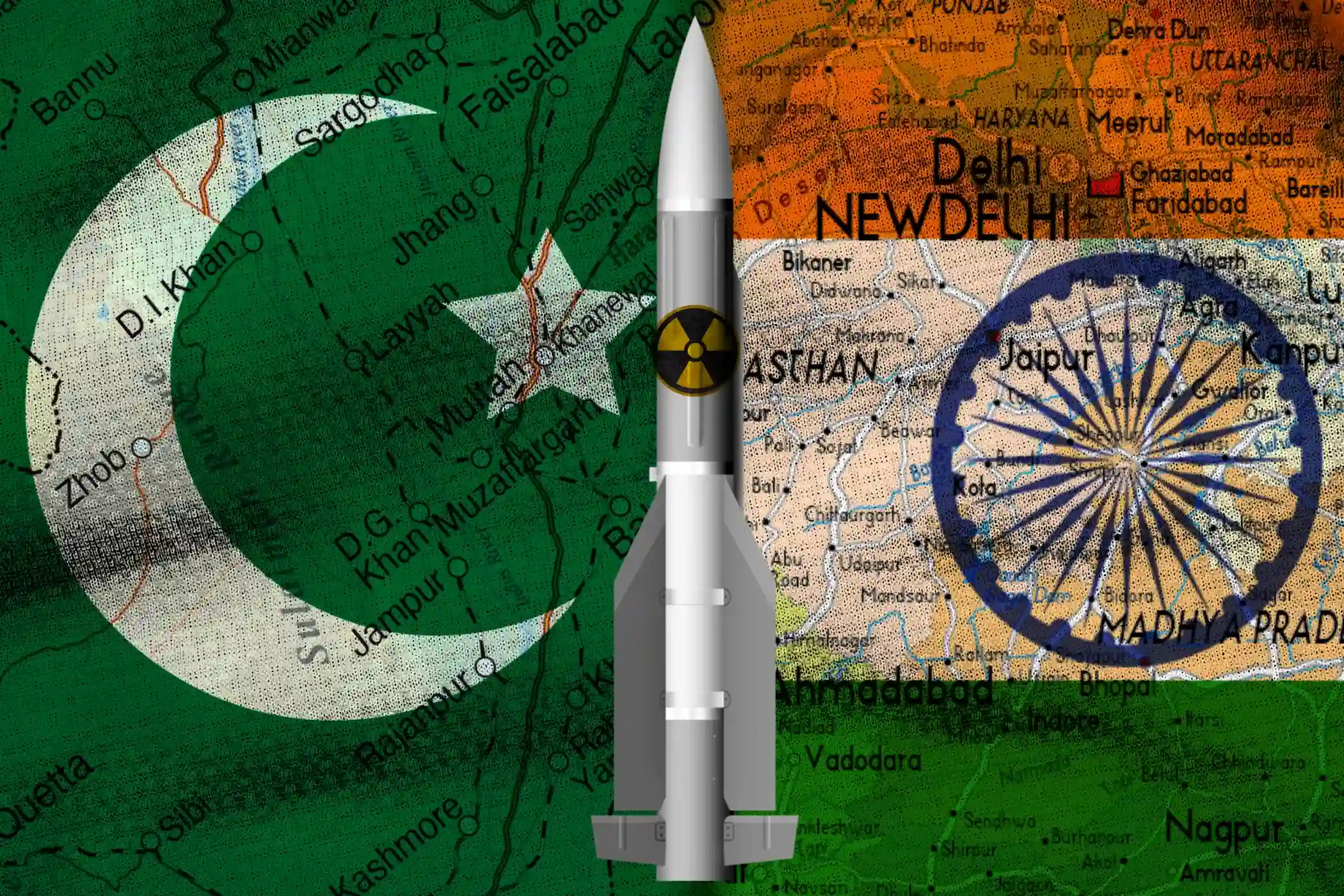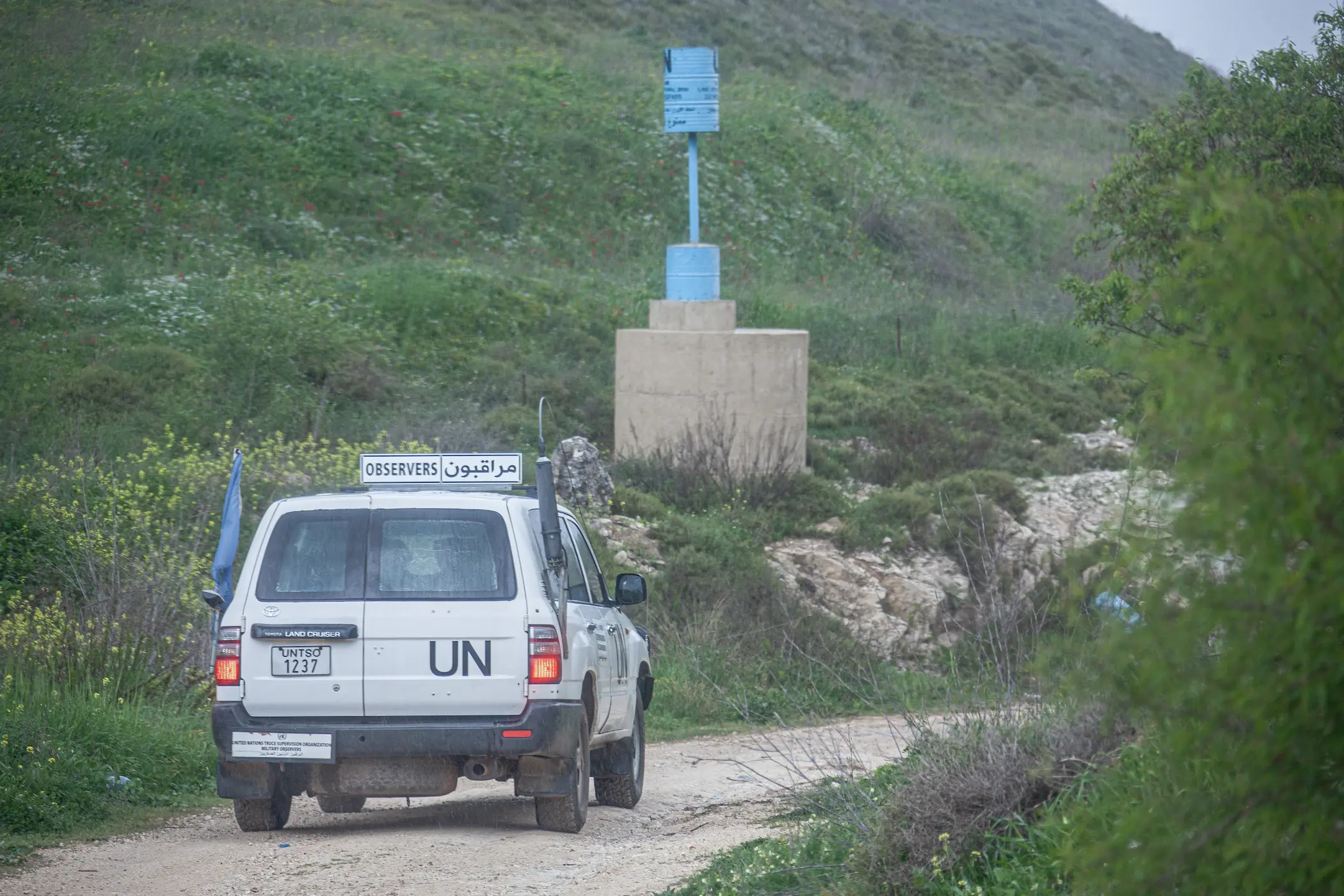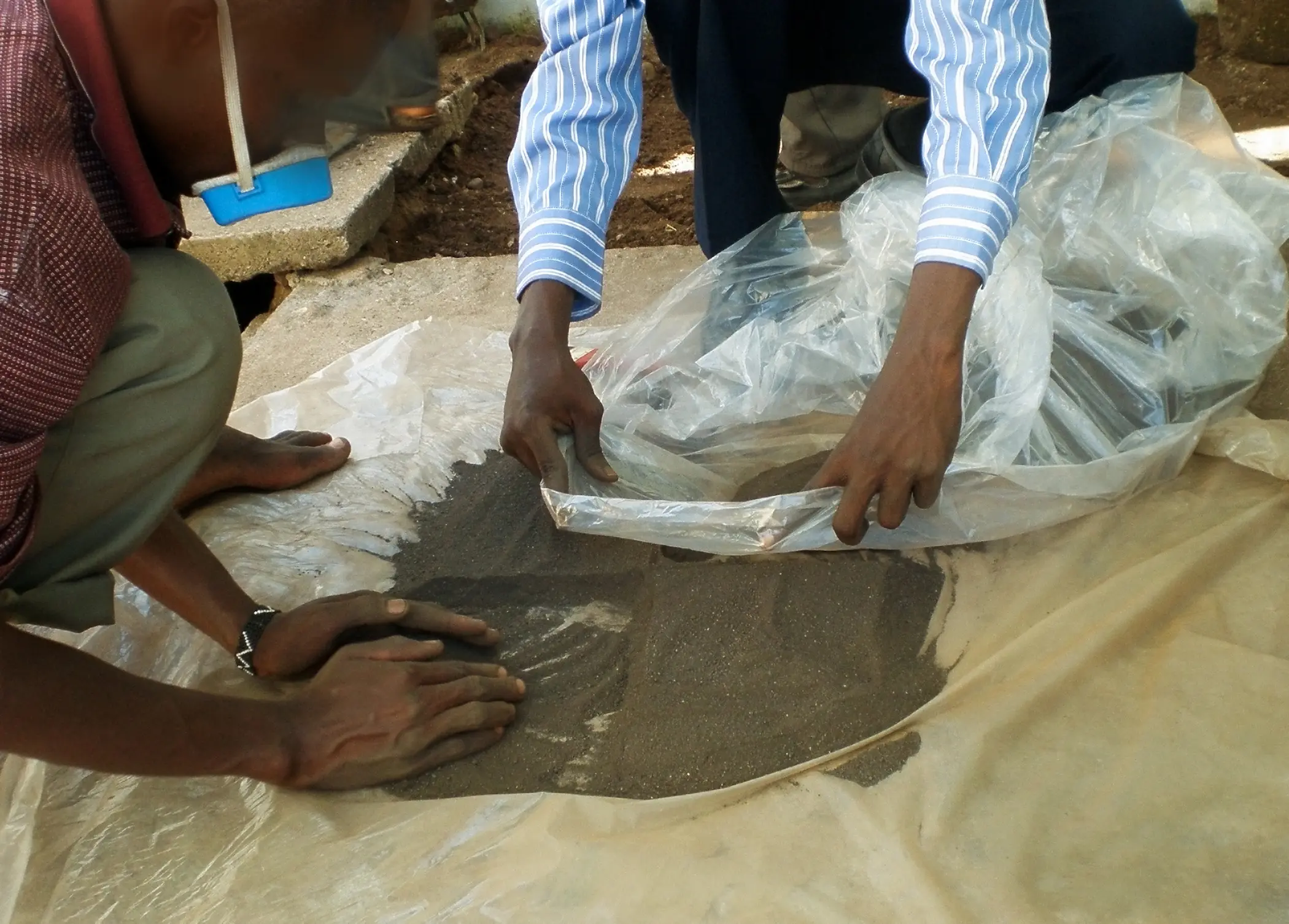10 Jul 2025
Sports Diplomacy and the Reduction of Global Political Tensions
Sports diplomacy is not something new. It can be traced back to the ancient Olympic Games, when Greek city-states suspended conflicts to compete peacefully. The modern Olympic movement, revived in 1896, was based on similar principles of fostering global unity. However, sports have also been used to serve political agendas, such as the 1936 Olympics in Berlin, during which Nazi Germany turned the games into a propaganda tool. In other cases, sports played an important diplomatic role to ease tensions between countries. The Ping-Pong diplomacy, for instance, facilitated communication between the U.S. and China in 1971, which later paved the way for President Richard Nixon’s historic visit in 1972. This analysis explores how sports diplomacy contributes to easing political tensions between countries.
8 Jul 2025
Crossroads: The Battle for the Soul of the Democratic Party
Having lost the presidential election and both chambers of Congress, it should have been expected that the Democratic Party would reflect on why voters rejected the party’s policies, platform, and candidates, and rally to face a second and far more empowered Trump administration that is aggressively dismantling the core of the Democratic Party’s achievements.
Instead, Democrats seem to have lost themselves, mired in an internal struggle over the party’s identity and future direction and unable to agree on what it truly means to be a Democrat in the Trump era.
These rifts reflect the fundamentally contrasting visions of what the party should stand for: incrementalism versus systemic change, compromise versus confrontation, electability versus principle. Without a unifying narrative or leadership capable of bridging these divides, the Democrats risk remaining paralyzed at pivotal moment in American history.
22 Jun 2025
Iran and Israel: The War That Will Redraw the Middle East
The war between Iran and Israel is arguably a war of survival for the regime in Iran. Attacking Iran seemed to be a logical step for Israel after almost destroying its arms of proxies in the region. the regime, which stands on three pillars, namely, its conventional missile arsenal, its extensive network of regional proxy forces, and its nuclear program, is facing a war of attrition that might eventually end the very survival of the regime. The fall of the regime in Iran goes beyond mere regime change, rather, it is considered a state collapse.
The collapse of the Iranian state would have dire consequences for the region. However, the possibility of the regime surviving remains a significant scenario. While the fall of Iran is widely regarded as a regional catastrophe, its continued survival, particularly with Tehran asserting itself as a regional superpower, could prove even more destabilizing for Israel and its allies. Both outcomes carry profound regional and global implications, signalling a transformation in Middle Eastern geopolitics. The pressing question is not whether change is coming, but rather: what will the new Middle East look like?
19 Jun 2025
Red Alert: Potential US Attack on Iran
On June 13, 2025, Israel launched a surprise offensive against Iran, striking nuclear facilities, missile bases, air defenses, and targeting military leaders and nuclear scientists. In response, Iran retaliated the same evening with firing over 150 ballistic missiles and 100 drones at Tel Aviv and Haifa.
Israel and Iran have continued to trade blows and there are no significant signs of a potential slowdown in the conflict between the long-time adversaries. The spectre that looms over both is that of U.S. President Donald Trump, who has gone from negotiating with Iran for a nuclear deal to pushing for its “unconditional surrender” in the span of a week. as the U.S. simultaneously repositions its military assets to potentially strike Iran.
15 Jun 2025
Why Did Iran Fail to Repel Operation Rising Lion?
Operation Rising Lion, executed by Israel on June 13, 2025, constituted a lightning strike aimed at crippling the very core of Iran's nuclear and military infrastructure. Israeli Prime Minister Benjamin Netanyahu characterised this pre-emptive operation as a necessary measure to "roll back the Iranian threat to Israel's very survival," drawing upon the Begin Doctrine previously brought to bear in analogous strikes against Iraq in 1981 and Syria in 2007. The operation's objectives were marked by strategic multiplicity and diversity, encompassing the targeting of numerous nuclear facilities, alongside senior Iranian military commanders and nuclear scientists, in an endeavour to inflict maximum damage upon Iran's military and nuclear capabilities. Israel's intent was not merely confined to disrupting the nuclear program; it extended to undermining Iran's capacity to mount retaliatory assaults and to fend off future waves of Israeli attacks.
The timing of the Israeli operation came on the heels of a meticulous assessment by the Israeli leadership, which had concluded that Iran was on the cusp of achieving a dangerous breakthrough in its pursuit of nuclear weaponry, thereby necessitating the exploitation of a narrow temporal window before Iranian nuclear facilities became either too advanced or too robustly protected. In this context, this analysis aims to delve into the rationale underpinning the operation, to account for Tehran's apparent failure to parry the assault effectively, and to examine the attack's repercussions on Iran's domestic landscape. Furthermore, it seeks to investigate the potential pathways Iran might pursue to reconstitute its deterrent capability.
12 Jun 2025
Clandestine Axis of Middle East Hegemony: Iran, Israel, and the US
In George Orwell's classic 1984, his world was held together by unending war: In the book, messages of hate and reasons to fear were broadcast each day to encourage fearful, slavish masses to rail against an imaginary enemy rather than their actual masters.
US and British geo-strategists have historically been masters of manipulation, redrawing the map of the world to suit Western economic, geopolitical, and military interests, particularly in the MENA region. Their detractors are convinced that their broad goal is Western domination of the area via surrogates and partners such as Israel and Iran (via the back door) to retain control over natural resources and waterways while ensuring those resources do not fall into the hands of competitors such as China and Russia. A school of thought contends that they manufacture sectarian conflicts on the principle of “divide and rule,” creating tensions that justify the installation of military bases and fuel the military-industrial complex through arms sales.
A 2008 paper titled America’s Divide and Rule Strategies in the Middle East by Mahdi Darius Nazemroaya highlights US efforts to create divisions within Middle Eastern and Central Asian populations through ethno-cultural, religious, sectarian, national, and political differences. According to this perspective, sectarian divides—particularly between Sunni and Shia Muslims—have been deliberately cultivated to weaken regional unity and facilitate geopolitical control.
The Iraq War (2003) and its aftermath further exacerbated these sectarian tensions. The dismantling of Saddam Hussein's Sunni-dominated Ba'athist regime and the empowerment of Shia and Kurdish groups created a power vacuum, fueling sectarian violence. Groups like Al-Qaeda in Iraq (later ISIS) thrived under these conditions, exploiting sectarian grievances. The redrawing of Iraq’s internal boundaries, particularly the establishment of the Kurdistan Regional Government, further solidified ethnic divisions. Toby Dodge, in Inventing Iraq: The Failure of Nation Building and a Road to Peace, argues that the US approach to state-building in Iraq inadvertently deepened these fault lines.
Similarly, US involvement in the Syrian Civil War (2011–2024), through support for various opposition groups, contributed to the country’s fragmentation along ethnic and sectarian lines. The conflict saw the rise of numerous factions, many of which received US backing. The emergence and territorial control of Kurdish-dominated forces in northeastern Syria, supported by the US in the fight against ISIS, created tensions with Arab populations and neighboring Turkey. The conflict has been widely analyzed as having a significant sectarian dimension, with regional powers backing different factions along Sunni-Shia lines.
Middle East expert and author Fred Reed states: “One might be forgiven for surmising that the current thrust of US policy in the Middle East and through the Muslim world is to exacerbate Sunni-Shiite divisions.”
US foreign policy in the region has often been perceived as favoring certain regional powers over others, sometimes along sectarian lines, exacerbating existing tensions. The complex relationship between the US and Saudi Arabia (a Sunni-majority state) and its rivalry with Iran (a Shia-majority state) has frequently been interpreted through this lens, even if US interests are primarily geopolitical. Support for different factions in conflicts like the Yemeni Civil War has similarly been framed within the context of regional sectarian rivalries.
Certain think tanks and policy circles in the US have promoted ideas that emphasize sectarian and ethnic divisions in the Middle East as a way to understand and potentially manage the region. Foreign Policy in Focus columnist Conn Hallinan argues that a major US concern in the Middle East is oil. With two-thirds of US oil expected to be imported by 2020, and 65% of the world's remaining oil reserves located in the Middle East, he suggests that a strategy of “divide and conquer” is aimed at keeping strategic control of these resources. Hallinan also highlights the lucrative nature of ongoing Middle Eastern tensions for the US arms industry, citing that countries like the UAE, Saudi Arabia, Kuwait, and Oman have spent over $150 billion on arms purchases.
While the significance of oil in US foreign policy has arguably shifted due to increased domestic production and diversification of energy sources, the Middle East remains strategically important for global energy security. A 2024 report from the Council for a Secure America notes that US oil imports from the Middle East have reached a record low, falling below 11% of total imports. However, this shift does not negate the region’s role in global energy markets.
The US continues to maintain strong relationships with key Gulf oil-producing states like Saudi Arabia and the UAE. While policy priorities have expanded beyond securing oil supplies to include counterterrorism, regional stability, and containing rival powers, access to stable energy markets remains a key consideration. Events like the war in Ukraine have further underscored the interconnectedness of global energy markets and the importance of stable Middle Eastern oil production in preventing global price shocks. In fiscal year 2024, US military sales surged, with direct commercial sales rising to $200.8 billion from $157.5 billion in 2023. Government-facilitated arms sales also increased to $117.9 billion. The Middle East remains a significant market for US arms exports, with over $5.5 billion in approved arms sales to Egypt and Morocco alone in December 2024.
The underlying argument of this paper is that beyond the apparent hostilities and rivalries in the region, there exists a covert strategic alliance between Iran, Israel, and the United States. This cooperation manifests in various ways, including indirect coordination in conflict zones, intelligence-sharing, and economic transactions that defy public rhetoric. Despite Iran’s portrayal as a staunch adversary of both the US and Israel, instances of tacit collaboration—such as Iranian oil exports finding their way to markets through indirect channels, US tolerance of Iranian-backed militias in specific contexts, and shared interests in counterbalancing regional actors like Turkey and the Gulf states—suggest a more complex dynamic. This hidden alliance reflects a pragmatic approach to maintaining regional equilibrium, securing strategic interests, and preventing the emergence of truly independent powers that could challenge the existing order.
3 Jun 2025
Why the Houthis Insist on Attacking Israel?
The Houthi armed group has been launching missile and drone attacks on Israel since the start of the Hamas-Israel war in October 2023. While these actions have been undertaken to show solidarity with Gaza and the Palestinian cause, the Houthi utilised these attacks to increase its popularity in Yemen. Moreover, the Houthi group, which is mainly supported by Iran, used these attacks to prove that it is capable militarily of engaging with foreign powers, hence delivering a message to the Aden-based legitimate government and its Gulf allies that it is militarily ready to engage with them.
28 May 2025
What If: The US Economy Collapses?
Global trade tensions, supply chain disruptions, and skyrocketing costs are some of the unprecedented effects caused by U.S. president Donald Trump’s second term aggressive tariff policies. Tariff policies' impact goes beyond being just hypothetical, with real-time predictions and forecasts that more severe effects could follow; the global GDP is expected to slowly grow by only 2.2% in 2025, while the United Nations Conference on Trade and Development (UNCTAD) has warned of a possible global recession, given that growth slips below 2.5%. Not only the UNCTAD but also the International Monetary Fund (IMF) has downgraded its outlook for the global economy to 2.8% in 2025 and made a significant revision for the U.S. economy lowering its 2025 growth projection to 1.8% in April from 2.7% in January. Adding to these concerns, the World Trade Organization has already highlighted a sharp deterioration in global trade prospects, with world merchandise trade now expected to decline by 0.2% in 2025, nearly three percentage points lower than previous forecasts.
The current instabilities go beyond the economic aspect; they also affect the U.S.’s international alliances and add additional burdens to households, many of whom are delaying major life decisions. A pressing question amid recession fears arises: What are the impacts on a global scale in the event of a U.S. economic collapse? Given the leading position the U.S. plays as the world’s largest economy and the leading issuer of primary reserve currency, such a downturn would trigger a financial disaster of unparalleled magnitude. Essentially, if the U.S.’s economy falls, the world’s economy falls with it. Imagine waking up a few years from now, pulling out your phone, and seeing the headline: "U.S. Economy in Freefall: Markets Collapsed Overnight." It begins as a distant rumble, as if a story is taking place somewhere else. But then you go to get your morning coffee, and the price has tripled. Your investment app reveals that your life savings have been devastated. Overseas, factories that rely on American consumers come to a standstill, leaving entire villages jobless. The USD, once the cornerstone of global banking, has collapsed, provoking wild currency wars as governments try to preserve their own. Suddenly, that far-off catastrophe isn't so far away; it's emptying your wallet, increasing your grocery cost, and endangering your basic existence. This isn't just a headline; it's a chilling, global economic winter, its icy grip felt in every home, on every continent, for generations. Are we truly prepared for such a cataclysm?
14 May 2025
What If: The India-Pakistan Ceasefire Collapses?
The recent U.S.-brokered ceasefire between India and Pakistan, following four nerve-racking days of escalating military exchanges, offered a moment of reprieve from the brink of what many feared could become an all-out conflict between the two nuclear-armed neighbors. Missiles and drones crossed borders, tensions were sky-high, and the language from both capitals was increasingly aggressive. President Trump's sudden announcement of a truce, while welcomed, underscored the inherent fragility of the situation. Amid celebrations in India and Pakistan, and self-congratulations in Washington, Kashmir endured another night of violence, with both sides claiming violations. This temporary calm exists against a backdrop of deep-seated historical grievances, unresolved territorial disputes, evolving nuclear doctrines, and a complex interplay of internal and external pressures. The critical question now is not just how the ceasefire was achieved, but whether it can hold, and what the consequences would be if this fragile truce were to collapse.
8 May 2025
Hezbollah 2.0: The Future of the Party in Lebanon
Hezbollah stands at a pivotal crossroads, navigating the turbulent aftermath of a devastating conflict with Israel and grappling with profound shifts in its domestic politics and the regional strategic map. The cessation of hostilities, marked by a U.S.-brokered ceasefire effective Nov. 27, 2024, brought an end to intense fighting that inflicted immense human suffering and infrastructural damage across the country. This fragile peace coincided with, and was significantly influenced by two seismic events: the sudden collapse of the al-Assad regime in Syria, severing Hezbollah’s critical land bridge to Iran, and the end of a paralyzing two-year presidential vacuum in Lebanon with the election of the Lebanese Armed Forces (LAF) Commander General Joseph Aoun, who has promised to dismantle Hezbollah’s military structure and restrict access to weapons, these promises were likely possible to make because of Hezbollah's significantly weakened state.
The 2024 conflict dealt an unprecedented blow to Hezbollah, resulting in the decapitation of its leadership, including longtime leader Hassan Nasrallah and his designated successor; the death of thousands of its fighters; the depletion of its arsenal; and the destruction of vital military infrastructure. This military degradation precipitated a tangible decline in its political influence. Regionally isolated by the fall of its Syrian ally and unable to dictate terms domestically, facing the state signaling a potential shift in Lebanon's internal power dynamics.
Faced with military exhaustion, regional isolation, domestic political setbacks, and a core narrative of "resistance" severely challenged by the reality of defeat, Hezbollah confronts an existential crisis. The organization that emerged from the 2024 conflict is fundamentally different from the one that entered it. This analysis, probes the future trajectory of Hezbollah in this drastically altered landscape to understand how Hezbollah might adapt, survive, or transform in the face of these compounding pressures, and the constraints facing the Lebanese state and the United Nations Interim Force in Lebanon (UNIFIL) in asserting sovereignty, the divergent perspectives shaping the political discourse, and the plausible future pathways for Hezbollah in Lebanon.
6 May 2025
DRC Minerals and a Potential U.S.–EU Confrontation
In a few months, the Trump administration is expected to push Rwanda and the Democratic Republic of Congo (DRC) to sign a peace deal which is supposed to be followed by a bilateral minerals’ agreement between the U.S. and the DRC. The agreement puts some parties in an advantageous position while leaves others with a less fortunate fate. The U.S. is supposed to gain economically and politically by this agreement especially when it comes to its rivalry with China. While the DRC is expected to gain in the short-term leveraging the “conflict minerals” narrative, the long-term consequences are not necessarily desirable. The EU is left with the undesirable situation. The bloc will either adjust its policies toward the DRC’s minerals or remain in a situation where a clash with the Trump administration is possible. While a direct military confrontation between the two powers remains improbable, a proxy war in which M23 rebels are a main actor is possible. Additionally, with minerals gaining increasing geoeconomic relevance, Trump has eyed several countries including Ukraine, and the DRC, who could be his next target?
15 Apr 2025
Ripple Effect: Trump Tariffs and the World’s Economic Quake
In April 2025, the Trump administration stunned global markets by announcing a sweeping tariff expansion under the International Emergency Economic Powers Act (IEEPA), introducing a flat 10% universal tariff on all imports. This move, framed as a national economic emergency response, immediately triggered global trade uncertainty and diplomatic friction. The policy marked a significant escalation of Trump’s protectionist agenda, signalling a break with multilateralism and targeting long-standing trade imbalances with strategic rivals and allies alike. We found that the United States (U.S.) trade structure is deeply imbalanced, with persistent deficits concentrated in sectors essential to industrial production, such as machinery, electronics, and vehicles. These deficits have exposed the U.S. to retaliatory measures from key trade partners—particularly China, Canada, and the EU—who have calibrated their responses to hit politically and economically sensitive export categories. Tariffs have initiated a multi-channel inflationary shock: direct consumer price increases, rising intermediate input costs, and cascading pressures on logistics and wages. The compounded effect has resulted in a net consumer price index (CPI) increase of approximately 1.2%, with higher spikes in key durable goods. Global supply chains are beginning to reconfigure.
The automotive sector, in particular, has seen disruption in bilateral flows with traditional partners, creating openings for new logistical nodes. The UAE stands out as a beneficiary, attracting redirected FDI and becoming a strategic re-export and final assembly hub. Collectively, these findings underscore a paradox: while the policy aims to reduce dependency and correct trade imbalances, it simultaneously accelerates external retaliation, domestic cost pressures, and global fragmentation in trade infrastructure.


